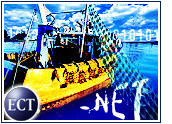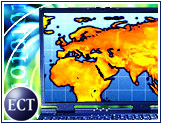
Is the strip-mall travel agent going to go the way ofthe dinosaur?
Through the years, many business peoplehave justified their roles as “middlemen”– and earned their paychecks –by adding value to the space between themerchant and the end-user customer.And perhaps the ultimate middlemanhas been the travel agent.
Many travel agentshave brought clarity, advice and peaceof mind to travelers, while providing an effectivedistribution channel for travel merchants.
With the surge of travelers turning toInternet sites to purchase their airline tickets,however, many are asking about the long-term viabilityof traditional travel agents, and even predictingtheir eventual demise.
However, most analysts agree that a more plausible outcomeis that the resilient brick-and-mortar travel agenciesthat are willing to provide a real servicewill always be around. Competitive forces willonly crush those travel agents who have limited theirservices to mere order taking.
“The agent who can get you on that sold-out flight, orwho can knock US$4,000 off that international businessclass ticket, will not only survive, but will prosperbecause they know how to add value,” Forrester senioranalyst Henry Harteveldt told the E-Commerce Times.”The ‘order takers’ are as relevant to today’s travel industry as the 707is to airline transportation. [They] dragdown the whole travel agency industry.”
Bread and Traffic Jam
Brick-and-mortar travel agencies are indeed facing a firestorm of competition from the Net.
Their Web-basedcounterparts like Travelocity (Nasdaq: TVLY), Expedia(Nasdaq: EXPE), and Orbitz arebecoming important stomping grounds for travel shoppers andare easily fingered by outsiders as the nemeses of traditional agents.
All told, year-over-year from February 2000 to February2001, unique visitors to travel Web sites increased23.5 percent, from 24.4 million to 30.1 million,according to Media Metrix ratings data.
Out of Respect
But even the leaders among online agencies, likeTravelocity, acknowledge that multichannelcompetition has always characterized the airlineindustry and that offline agents have a place, filling theoft-expressed customer need for flesh-and-blood travelservices.
“The days when the traditional agencies could claim aGod-given right to commissions and profits are gone,”Travelocity executive vice president of sales andservice Jim Marsicano told the E-Commerce Times. “But[offline agents] will always be necessary and valuablefor the huge population that values the human touch.”
The Internet may be the best tool to quickly findinexpensive point-to-point fares, said Marsicano, butmuch of the offline population is more than willing toendure agents’ service charges in exchange for havinga trusted human being take care of their travelpurchases.
Survival Tactics
“For most brick-and-mortar agencies, therewill be three options: acquisition, specialization, orextinction,” Gartner Group analyst David Schehrasserted in a recent report.
The latter of the three options seems unlikely tooccur on a grand scale — at least not any time soon. In2000, Forrester estimated that of the $100 billionspent in the U.S. on leisure travel, just $8.3 billionwas spent online. Looking ahead to 2003, Forresterexpects the total travel expenditures to be $108billion, with just $16.4 billion spent online — aslight channel shift, but nothing of mutinousproportions, by any means.
The first two options suggested by Schehr –acquisition and specialization — comprise the core ofmany travel agency survival strategies, accordingto Kathy Sudeikis, national vice president of theAmerican Society of Travel Agents (ASTA).
Traveling to Other Agencies
Sudeikis told the E-Commerce Times that consolidationhas indeed reduced the total number of travel agencylocations. But she says that the total amount ofbusiness has remained constant and now just flowsthrough fewer locations.
She would argue that the former customers of theapproximately 2,000 agencies that closed in 1999, perSchehr’s estimate, will simply find otherbrick-and-mortar agencies to patronize.
Statistics from the Airlines Reporting Corporation(ARC) support Sudeikis’ argument, indicatingthat 80 percent of airline tickets are stillpurchased through traditional travel agents. Thepercentage is even higher in other travel sectors likecruises (90 percent) and tours (95 percent).
Illustrating the co-existence of online and offlinetravel sales channels, Sudeikis pointed out thatTerrell Jones, president and chief executive officerof Travelocity, booked his last vacation through atraditional travel agent.
Fine Print
Sudeikis does not dispute the increasing prevalenceand value of online travel sites. In fact, she freelyadmits that she uses them routinely to find fares for herclients. But, she argues, travel Web sites fall short whena traveler is looking for anything more than just apoint-to-point fare.
This is why specialization willbe so integral to travel agents’ long-term survival,she said.
“Travel agencies used to be one size fits all,” saidSudeikis. “Now we’re becoming specialists in lifestyleand hobby niche travel.”
For example, there is marked customer demand for trips forgardeners, chess players, and other hobbyists,Sudeikis said. And lifestyle niches, such as seniors,families, and intergenerational, also definecustomers’ travel needs.
Finding a Place
Efforts by Sudeikis and other agents to fine-tunetheir service offerings will go a long way toward sustaining their existence,according to Forrester’s Harteveldt.
“Niche specialists — cruise, ethnic, active,gay/lesbian, etc. — will survive, but they’ll face atough business environment,” said Harteveldt.
Cutting Corners
Toughening the environment for both offline and onlineagencies are recent cost-cutting initiatives launchedby travel providers, especially airlines. Theseinitiatives have come in the form of agent commissioncuts and buy-direct campaigns aimed at consumers.
Airlines typically pay between $22 and $32 per ticket in commission and distribution fees, according toHarteveldt. In 2001, this will amount to about $380million in transaction fees for a major airline likeAmerican.
To cut these costs, airlines are giving consumersincentives to buy directly from their own Web sites, with farediscounts and bonus mileage programs. They are gunningfor per-ticket transaction fees closer to $6 or $8,which, by Forrester’s estimate, is the case when ane-ticket is booked online from an airline’s own site.
Strong Roots
Still, ASTA’s Sudeikis remains “cautiously optimistic”about the future for brick-and-mortar travel agents,acknowledging that agents should actually embrace theInternet as a valuable purchasing tool for some typesof travel.
“[The airlines] haven’t figured out that customershave relationships with their travel agents and arenot lured away by lower prices,” said Sudeikis.
Clearly, there is still value to be rendered andlivings to be made by those offline travel agents who are thinkingstrategically about how to capitalize on the offlinecustomer base that will continue to co-exist withtheir online competitors.















































Social Media
See all Social Media